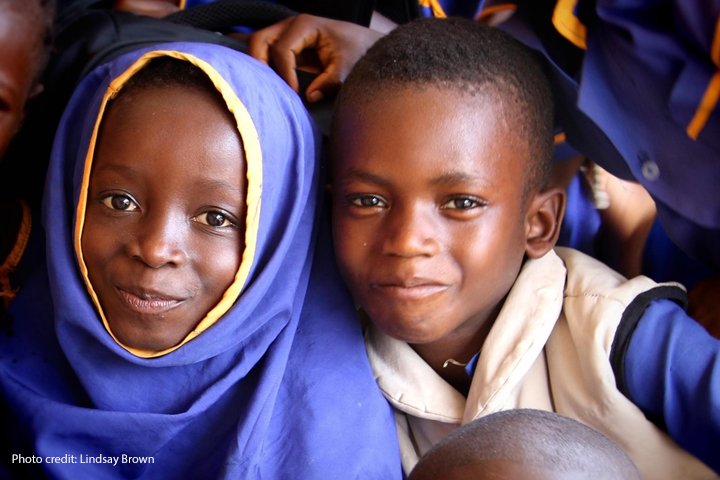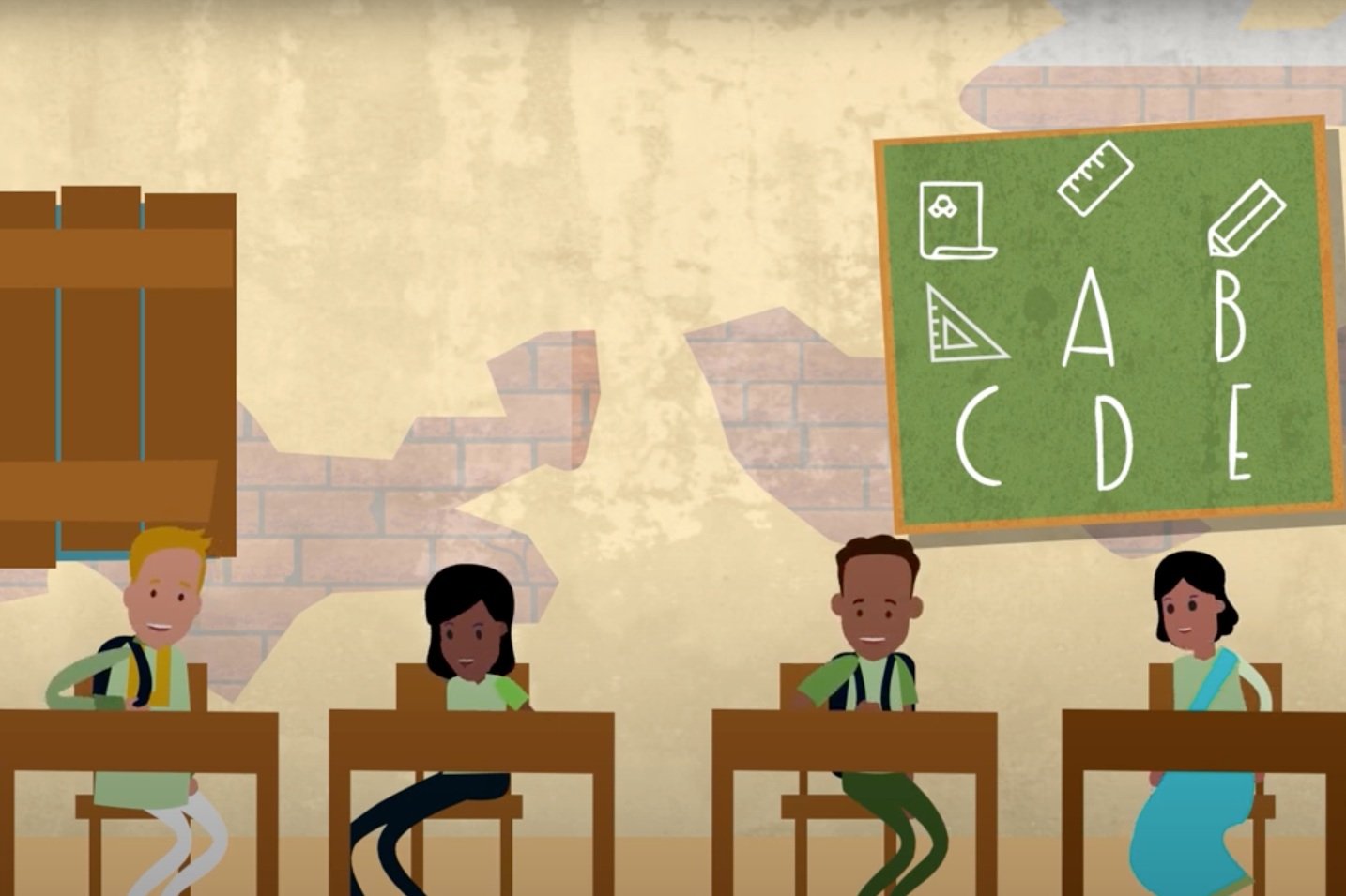Resources
From Evidence to Action for Education in Emergencies: TIES Collection of 3EA E-Cubed Research and Engagement
The purpose of this product is to summarize and showcase the achievements on communication of the evidence and lessons learned from the 3EA E-Cubed project. In sum, we generated 59 total communications products across 12 different formats targeting diverse audiences. These products are presented in 12 different formats, to cater to these diverse audiences and maximize the reach and impact, ranging from academic journals, policy briefs, and datasets to press releases, blogs, webinars, interactive online tools, and more.
How to Support School-Aged Children Living in Crisis Contexts? Evidence-based Recommendations for Stakeholders
Science is the most useful when it catalyzes change. In this tool, we provide actionable recommendations and guidance on how to best support education in emergencies, to get the evidence into the capable hands of the education stakeholders.
Remedial Education to Support Learning Loss Threatened by Cuts to Development Aid
This blog is written by Dr Lindsay Brown, Senior Research Scientist at NYU-Global TIES in Steinhardt School of Culture, Education, and Human Development. Lindsay primarily investigates how to support teachers in areas of conflict and crisis with a focus on flexible and scalable teacher professional development strategies. She works mainly in the Middle East and Africa.
Image credit:
Pawel Czerwinski
@pawel_czerwinski via Unsplash.
Remedial programming and skill-targeted SEL in low-income and crisis-affected contexts: Experimental evidence from Niger
Despite substantial cross-national interest in remedial programming as a way to support low-achieving students, evidence of its effectiveness is rare, particularly in low-income and/or crisis-affected contexts. In this article, we present experimental evidence of the impact of a remedial tutoring program on academic outcomes from a two-level randomized trial of two treatments in Niger: school randomization testing the impact of skill-targeted SEL activities and within-school student-level randomization testing the impact of access to remedial tutoring.
Response to Stress Questionnaire (RSQ) - Niger
The original Response to Stress Questionnaire (RSQ: Connor-Smith et al., 2000) was designed to capture the ways that individuals react to and cope with specific sources of stress, including parental depression, family conflict, and academic stressors. In order to assess local and refugee children’s stress experiences and stress responses in Nigerien public school settings, researchers adapted the child self-report version of the RSQ-Academic Problems (RSQ-AP). It includes two subscales intended to assess: (a) academic problems stress and (b) involuntary engagement response to stress.
Self-Regulation Assessment-Assessor Report (SRA-AR) - Niger
The Self-Regulation Assessment-Assessor Report (SRA-AR) is a measurement tool used to capture assessors’ perceptions of of Nigerian refugee and Nigerien children’s skills at regulating their behavior during an assessment. The SRA-AR was developed based on the Preschool Self-Regulation Assessment-Assessor Report (PSRA-AR) (Smith-Donald et al., 2007). The developers tested this measurement tool in Niger.
Niger Year 2 Deidentified Data (2017-2018)
To generate the evidence needed to understand, improve and share what works to help refugee children learn and succeed in school, the International Rescue Committee (IRC) and NYU Global TIES for Children (TIES/NYU) established a strategic partnership, the Evidence for Action: Education in Emergencies (3EA) initiative. 3EA in Niger was designed and delivered to help strengthen the public education system in Niger and to serve refugee, IDP and host community children in the hard-hit Diffa region. It strove to achieve this through a remedial tutoring program infused with climate-targeted social-emotional learning (SEL) principles and practices (Tutoring in a Healing Classrooms), and adding skill-targeted SEL interventions (Mindfulness activities, Brain Games).
Niger Year 1 Deidentified Data (2016-2017)
To generate the evidence needed to understand, improve and share what works to help refugee children learn and succeed in school, the International Rescue Committee (IRC) and NYU Global TIES for Children (TIES/NYU) established a strategic partnership, the Evidence for Action: Education in Emergencies (3EA) initiative. 3EA in Niger was designed and delivered to help strengthen the public education system in Niger and to serve refugee, IDP and host community children in the hard-hit Diffa region. It strove to achieve this through a remedial tutoring program infused with climate-targeted social-emotional learning (SEL) principles and practices (Tutoring in a Healing Classrooms), and adding skill-targeted SEL interventions (Mindfulness activities, Brain Games).
Research Near & Far: Global TIES for Children
IHDSC met with NYU Global TIES for Children (TIES) researchers Lindsay Brown and Ha Yeon Kim to discuss their research with students in Niger and the insights and challenges that come with doing research in conflict-affected areas. This conversation was edited for clarity and length.
Teachers’ Observations of Learners’ Social and Emotional Learning: Psychometric Evidence for Program Evaluation in Education in Emergencies
Rigorous evaluation of social and emotional learning programs requires the use of measures that provide reliable and valid information on the meaningful differences in children’s social emotional skills across treatment and control groups, as well as changes over time. In contexts affected by conflict and crisis, few measures can provide the evidence required to support their use in program evaluations, which limits stakeholders’ ability to determine whether a program is working, how well it is working, and for whom.
Reimagining Education in Emergencies: Lessons from research in three crisis-affected countries RewirEd Summit virtual session
The pre-recorded video was disseminated to global key stakeholders participated in the RewirEd summit.
التعليم في حالات الطوارئ
الوصف: يركز هذا الفيديو التوضيحي على "إنشاء الأبحاث": الدروس المستفادة والنصائح العملية للباحثين وأصحاب المهنة لتوجيه المجال نحو إنشاء الأبحاث. للمزيد من المعلومات حول هذا العمل، اقرأ هنا: https://www.cambridge.org/core/journa..
L'éducation en Situations d'Urgence : Vidéo Explicative des Preuves Pour l'Action (3EA)
Cette vidéo explicative est axée sur « Construire une science pour l'action » : leçons tirées et conseils pratiques pour les chercheurs et les praticiens afin de faire avancer le domaine de l’éducation vers la construction d'une science pour l'action.
Education in Emergencies: Evidence for Action (3EA) Explainer Video
This explainer video is focused on “Building a Science for Action”: Lessons learned and practical advice for researchers and practitioners to move the field towards building science for action. The 3EA initiative, born out of a research-practice partnership between TIES and the International Rescue Committee, aims to generate evidence and tools on what works to improve children’s holistic learning and development. This work also aims to improve the quality of program implementation and to answer the questions of what works, how, for whom, and under what conditions.
Can tutoring informed by social-emotional principles improve learning outcomes? A look across multiple conflict-affected contexts
What can be done to improve learning outcomes for the millions of children growing up in conflict-affected societies and enrolled in under-resourced school systems? How can the global community safeguard the right of every child, including those in crisis settings, to a quality education and position them to heal, learn and thrive? What are the best interventions that achieve the greatest outcomes for the most children in humanitarian contexts?
Improving Education for Refugee Children: Insights from Rigorous Research
By the start of 2018, 25 million refugees fled across international borders to seek protection. Over half of these refugees are under the age of 18. Little rigorous evidence exists on strategies to promote refugee children’s academic learning and socio-emotional development. What role can universities play in helping to close this critical gap in evidence? This panel describes the state of education for refugee children broadly, zeros in on the conditions of refugee children in Lebanon and Niger, and summarizes insights evaluating innovative strategies to promote the academic learning and social-emotional development of the children.
The Impact of IRC’s Healing Classrooms Tutoring on Children’s Learning and Social-Emotional Outcomes in Niger
During school year 2016-2017, the International Rescue Committee (IRC) delivered Healing Classrooms remedial tutoring programming and additional low-cost, targeted Social-Emotional Learning (SEL) (SEL) interventions to children in Diffa, a region in Niger affected by recurrent Boko Haram attacks. We found that, after twenty-two weeks of program implementation, access to Healing Classrooms tutoring significantly improved students’ reading and math skills, and adding targeted SEL interventions to Healing Classrooms tutoring improved children’s overall school grades. However, we found little evidence of direct impacts of the additional targeted SEL strategies on children’s social-emotional outcomes.
A cognitive assessment tool designed for data collection in the field in low- and middle-income countries
The Rapid Assessment of Cognitive and Emotional Regulation (RACER) is a tablet-based assessment tool for children that measures executive function (EF) skills. Instructions that are brief and visually presented; game-like tasks are designed to easily engage children regardless of literacy level and variable test administration settings. RACER measures inhibitory control and working memory. This study presents the theoretical rationale and empirical evidence for tablet-based assessments of EF, the process of administering the RACER assessments. The current sample consists of students in Lebanon (N=1900) and Niger (N=850). The results indicate that individual differences in EF can be assessed by the RACER tablet tasks. Specifically, we demonstrate that EF scores are associated in expected ways with age and that tasks function similarly to what has been observed in high-income countries. The feasibility and utility for researchers, practitioners, and clinicians, of this cognitive assessment tool is discussed.
IRC Healing classrooms remedial tutoring programming improves Nigerien and Nigerian children’s learning
With support from Dubai Cares during the school year 2016-2017, the International Rescue Committee (IRC) delivered Learning in a Healing Classroom remedial tutoring programming to support local and internally displaced Nigerien children and refugee Nigerian children’s learning outcomes and retention in public schools in Niger. We found that, after twenty-two weeks of program implementation, (1) access to Healing Classrooms programming significantly improved students’ reading and math skills, and (2) adding low-cost, targeted Social-Emotional Learning (SEL) interventions to Healing Classrooms improved students’ overall school grades as well.


















